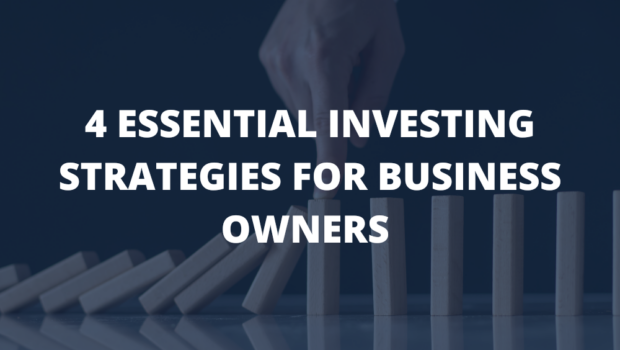Entrepreneurs and business owners often approach risk differently than most, especially when it comes to their comfort with uncertainty. As one founder put it, “The risks are endless…they never go away when you’re an entrepreneur.” This is the reality business owners face daily as they strive for growth and earnings. Managing risk becomes even more complex when balancing a business with personal financial health.

Article Categories
- All
- Popular
- Charitable Giving & Philanthropy
- Choosing an Advisor
- Estate Planning
- FAQs
- Investing & Portfolio Strategies
- Passing Down Family Wealth
- Planning for Retirement
- Sell My Business|Weekly Market Commentary
- Tax Strategies
- Wealth Building for Executives
- Wealth Building for Women
- Wealth Planning for Business Owners
How should you be paid for a thriving business? This guide will walk you through the earnout structure and guide your decision-making.
As a business owner, your professional and personal lives are intertwined and inherently connected to your business. With their identity largely tied to what they do professionally, many owners face confusing and conflicting emotions when leaving their company. Selling a business can be one of the most significant decisions of your life. The first step to planning for your exit is finding mental readiness.
In the game of entrepreneurship sometimes the market throws a curveball, and your business valuation is less than what you had expected. Instead of striking out, have a contingency plan in place. It’s good to hope for the best but be prepared to adjust your expectations downward if the valuation of your business comes in lower than expected.
Are you looking for clarity, conviction and unfiltered advice about your wealth?
You’ve come to the right place.
Business owners are on the hook for a lot: the full 15.3% self-employment tax, the cost of healthcare, building your own nest egg without the matching employer contributions to retirement plans often referred to as “free money” for employees. It’s no wonder that investing for retirement isn’t a top priority for some business owners who are busy trying to grow their business’ value.
*The following article was contributed by Greg Maddox, Senior Business and Exit Advisor at Cultivate Advisors Every business owner will exit at some point, and we all hope it will be on our own terms and timeline. However, only 20% of those who try to sell actually do. Well, why is that? Most business owners aren’t actually preparing their business for a sale.
Most business owners will agree: scaling a profitable business is not easy. It takes a strong vision, sufficient capital, the right leadership and great talent to build a valuable business asset. Even if you never decide to sell, creating a profitable business asset is an incredible way to build wealth. However, many business owners lack the right playbooks and resources to unlock the wealth trapped in their business.
Usually, owners of pass-through entities pay federal and state income taxes on the net income “passed through” to them on their personal tax returns. The business entity itself does not pay income taxes. Virginia’s General Assembly developed a system where the business entity itself is taxed at the state level, effectively allowing a federal deduction for the full amount of income taxes paid to the state.


